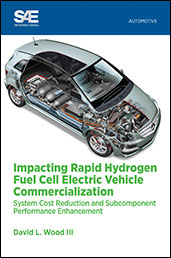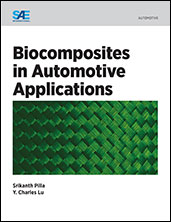Book

Impacting Commercialization of Rapid Hydrogen Fuel Cell Electric Vehicles (FCEV)
2016-02-19
Alternative propulsion technologies are becoming increasingly important with the rise of stricter regulations for vehicle efficiency, emission regulations, and concerns over the sustainability of crude oil supplies. The fuel cell is a critical component of alternative propulsion systems, and as such has many aspects to consider in its design. Fuel cell electric vehicles (FCEVs) powered by proton-exchange membrane fuel cells (PEFC) and fueled by hydrogen, offer the promise of zero emissions with excellent driving range of 300-400 miles, and fast refueling times; two major advantages over battery electric vehicles (BEVs). FCEVs face several remaining major challenges in order to achieve widespread and rapid commercialization. Many of the challenges, especially those from an FCEV system and subsystem cost and performance perspective are addressed in this book.

